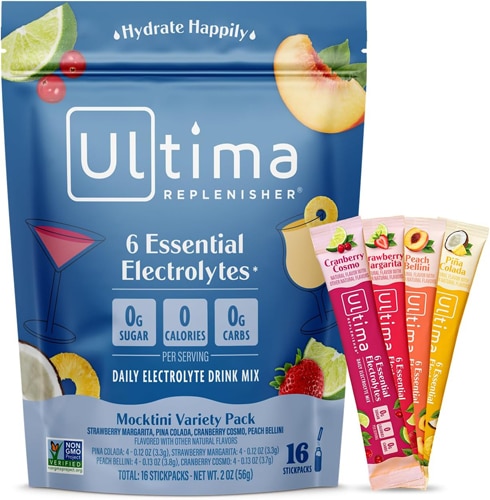[vc_row][vc_column][vc_column_text]As we age, our nutritional needs evolve, and maintaining good nutrition becomes increasingly important. During the summer, older adults face unique challenges such as higher risks of
dehydration, malabsorption and
muscle loss. Proper nutrition is essential to mitigate these risks and promote overall health and well-being.

Senior Health Tips for Hot Weather
Staying healthy & hydrated
Dehydration is a major concern for the elderly, especially in hot weather. The body's ability to conserve water decreases with age, and the sensation of thirst diminishes, making it easier for older adults to become dehydrated.
Factors increasing dehydration risks include decreased kidney function, medications that increase fluid loss like
diuretics and reduced mobility, which makes it difficult to access fluids.
Dehydration prevention strategies
Encourage regular hydration
- Drink water regularly throughout the day, aiming for at least eight cups daily.
- Incorporate hydrating foods such as cucumbers, watermelon and oranges into the diet.
- Consider using flavored water enhancers such as this one from Twinings to help drink more water with a splash of flavor.
- Include beverages like herbal teas, broths, soups and diluted fruit juices for variety.
Monitor fluid intake
- Keep track of daily water intake using a journal or an app. There are also free apps such as Daily Water, Water Alert and Waterlogged that can help with keeping track and setting reminders for you.
- Offer fluids frequently, especially if the individual has cognitive impairments.
- Create a hydration schedule by setting reminders for drinking water at regular intervals.
Preserving strength, mobility & muscle mass
Loss of muscle mass, known as
sarcopenia, is a significant concern for the elderly, leading to decreased strength and mobility. Contributing factors include age-related hormonal changes, decreased physical activity, age-related molecular changes, decreased motor neurons, an increase in inflammation and insufficient protein intake and overall nutrition.
Strategies to maintain muscle mass
A protein-rich diet
- Ensure a sufficient intake of high-quality proteins such as lean meats, fish, eggs, dairy products, legumes and nuts. Learn more about what to eat to further aid in muscle tissue building.
- Aim for a protein intake of 1.0 to 1.2 grams per kilogram of body weight per day.
- Consider protein supplements if you have trouble with getting protein in your diet. Liquid forms may be more tolerable and easily digested. Try adding them into your oatmeal, yogurt, smoothies/shakes and overnight oats. Consider the following brands: Orgain, Truvani, OWYN and Premier Protein. Here are some additional snack ideas for what to eat after a workout to increase muscle.
Resistance exercise
- Incorporate strength training exercises into the routine at least twice a week. New to strength training? Check out this guide to get started. Resistance bands, light weights or bodyweight exercises are great tools to build and maintain muscle mass.
Vitamins & minerals
- Ensure adequate intake of vitamin D and calcium to support bone health, which is crucial for muscle function. Include foods like fortified dairy products, leafy green vegetables and fish.
Stay active
- Partake in regular physical activities such as walking, swimming or gardening.
- Engage in activities that promote both cardiovascular health and muscle strength.
Other ways to prevent loss of muscle mass
- Consider aiming for five or more servings of both fruits and vegetables per day.
- Consume 20-50 gram of whey protein per day.
- Aim for 2-3 servings of omega-3 fatty acids per week. This may be in the form of a supplement, chia seeds, flax seeds and walnuts.
- For more tips on preventing muscle loss, explore these
Malabsorption: Addressing nutrient deficiencies
Malabsorption is a type of digestive disorder where the body can’t fully absorb nutrients from your food. It can lead to deficiencies of essential nutrients, which can be exacerbated by the heat of summer.
The common causes of malabsorption are age-related changes in the digestive system, chronic conditions like
celiac disease or
Crohn's disease and medications affecting digestion.
Strategies to improve nutrient absorption
Eat a balanced diet: Include a variety of fruits, vegetables, lean proteins and whole grains in your diet. Studies show that leaning toward a plant-based diet may aid in better colon health and digestion. Opt for nutrient-dense foods to maximize vitamin and mineral intake.
Eat small, frequent meals: Eat smaller, more frequent meals to aid digestion. Include
snacks that are rich in nutrients, such as nuts, yogurt and cheese.
Eat probiotic- and fiber-rich foods: Incorporate probiotic-rich foods like yogurt, kefir and fermented vegetables to support gut health. You may also consider supplementing with
probiotics as well. Ensure adequate fiber intake to promote digestive health, but increase it gradually to avoid gastrointestinal discomfort. My favorite motto is “start low and go slow.” If you have trouble getting fiber from your food, you may also consider looking into a supplement such as
psyllium husk. It can be a powerful yet soothing addition.
Stay hydrated to aid digestion: Adequate hydration is essential for proper digestion and nutrient absorption. Encourage drinking water between meals rather than with meals to avoid diluting digestive enzymes.
Additional tips: Consider
this guide for getting the most bang for your buck when it comes to pairing nutrients together for the best absorption.
Pancreatic enzymes may also be of great additional support for the breakdown and absorption of food and nutrients.
Additional strategies to prevent heat-related illnesses this summer
- If able, aim to stay inside during peak heat hours between 10 a.m. and 4 p.m.
- Ensure living spaces have air-conditioning, are well ventilated or have a fan
- Stay hydrated with water and electrolytes
- Be mindful of caffeine and alcohol intake
- Wear sunscreen, light-colored clothing and hats
- Aim to take cool showers/baths or use a handheld mister fan
Maintaining proper nutrition and hydration is crucial for seniors during the summer months. Ensuring adequate fluid intake, consuming nutrient-dense foods to support muscle mass and taking precautions against heat-related illnesses are essential steps for older adults to stay healthy and active. Addressing challenges related to nutrient absorption and hydration can significantly enhance the quality of life for seniors, helping them enjoy a safe and vibrant summer. By following these tips, you or your loved ones can enjoy a relaxing summer while ensuring proper hydration![/vc_column_text][/vc_column][/vc_row][vc_row][vc_column][vc_text_separator title="Featured Products" border_width="2"][vc_row_inner equal_height="yes" content_placement="middle" gap="35"][vc_column_inner width="1/3"][vc_single_image image="176749" img_size="full" alignment="center" onclick="custom_link" img_link_target="_blank" css=".vc_custom_1721942515810{padding-right: 7% !important;padding-left: 7% !important;}" link="https://www.vitacost.com/ultima-replenisher-hydration-electrolyte-mocktini-variety-pack"][/vc_column_inner][vc_column_inner width="1/3"][vc_single_image image="176747" img_size="full" alignment="center" onclick="custom_link" img_link_target="_blank" css=".vc_custom_1721942538830{padding-right: 7% !important;padding-left: 7% !important;}" link="https://www.vitacost.com/life-extension-healthy-aging-powder"][/vc_column_inner][vc_column_inner width="1/3"][vc_single_image image="176746" img_size="full" alignment="center" onclick="custom_link" img_link_target="_blank" css=".vc_custom_1721942553190{padding-right: 7% !important;padding-left: 7% !important;}" link="https://www.vitacost.com/davinci-laboratories-spectra-senior-multi-180-tablets-1"][/vc_column_inner][/vc_row_inner][/vc_column][/vc_row]




